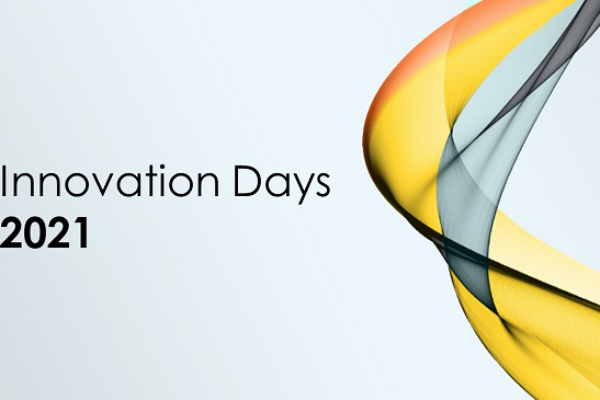This is how Selection Day went, a virtual day to choose the winning startups under the COME IN programme
The selected companies will work hand in hand with Prosegur to respond to the innovation challenges faced by the company. After months of preparation and an exhaustive selection process, the projects presented demonstrate that the future of security lies in collaboration.

Exploring Selection Day felt a lot like walking around any fairground, albeit virtually. All the companies had their own stands so visitors could chat with their spokespersons and watch videos about their proposals.
After receiving over 155 proposals from 35 different countries, the second edition of the COME IN open innovation programme now has its winners. The virtual Selection Day in mid-July resulted in the shortlisting of the projects submitted by Luminance, Eccocar, Wata, Hocelot and Aves. These young companies will now work hand in hand with Prosegur to respond to the innovation challenges that the company faces.
Selection Day proved to be the icing on the cake of this pioneering programme in the private security sector. It took several months from the time the selection committees received proposals from companies until they announced the finalists. Weeks of preparation, elaborate presentation dossiers, dozens of revolutionary ideas and a five-minute elevator pitch to defend their proposals before the panel of judges. Exploring Selection Day felt a lot like walking around any fairground, albeit virtually. All the companies had their own stands so visitors could chat with their spokespersons and watch videos about their proposals. Prosegur had spent weeks beforehand working hand in hand with the startups, advising them on their presentations, which had to be as innovative as possible, since they had to rapidly summarise the key elements of their proposal for presentation to the selection committee and the heads of different areas of the company.
Who are the winners of the second edition of COME IN?
Prosegur Alarms Challenge
Prosegur Alarms set a challenge to simplify the purchase and management of products or services without any human interaction. Eccocar submitted the winning proposal, consisting of an app that lets users book vehicles and access payment services, and fleet managers control bookings, users, vehicles and billing. Eccocar's technology helps fleet managers share vehicles among employees and also collect, standardise and manage all data, including data from electric charging points.
Prosegur Security Challenge
This challenge sought security solutions with non-invasive methods for crowded spaces or events, and was met by the Wata proposal, an indoor location information services platform that uses hyperproximity to deliver a comprehensive range of location-related services: including map creation, information gathering without any need for databases, location services and analysis. Wata aims to help companies gain future insights from customer and asset location information.
Cipher Challenge
For the challenge concerning cybersecurity and the reinforcement of security and trust in IoT network and related devices, the Aves proposal stood out with a product called PreSploit. The solution leverages deception technology to rapidly transform threat and vulnerability intelligence into tangible security controls that provide high-fidelity detection and intelligence of adversary activities.
Prosegur AVOS Challenge
Hocelot, a company specialising in managing objective information in real time to provide efficient solutions, emerged victorious in the challenge presented by the business unit specialising in the outsourcing of high value-added services. Hocelot processes the data to determine the quality of the information received from the client and then standardises it. They build on these data to create a real-time dynamic profile by enriching the information, gleaning hundreds of variables related to each customer.
Corporate-Legal Challenge
And lastly, Luminance succeeded in the corporate challenge, focused on the efficient use of information in both the public and private spheres for strategic decision-making. The startup, which specialises in machine learning, created a tool so that legal teams can review documents or contracts by comparing them with previous versions and with the company's contract database. The programme also reports anomalies and statistical differences in the documents, e.g. additional clauses or differences in the wording of clauses.
Each category had three finalists. Companies were given five minutes to present their solution and another five minutes to answer questions. After the interventions, the panel deliberated and announced the winning proposals in this second edition of the COME IN programme.
The panel was impressed by the high standards of this year's competition and how difficult it was to choose the winning solutions. The company therefore has not ruled out exploring avenues of collaboration with some of the participating companies in the future. COME IN is a challenge looking for startups with a product or working prototype that addresses the security challenges of the future. The winners will work together with the company's business units to develop the value proposition of their product and launch a pilot.
For the company, this challenge means opening up its doors to the talent and creativity of Spanish and foreign startups with innovative solutions to transform security activities. The challenge was met. "This year's second edition of COME IN, just like the previous one, has been a success. We are fully committed to the entrepreneurial ecosystem, and this is why the proposals received this year are excellent. We succeeded in attracting talent and disruptive ideas, which will help us to make the world a much better and safer place", explained the Corporate Innovation Director, José Daniel García Espinel.



.jpg)
.webp)
